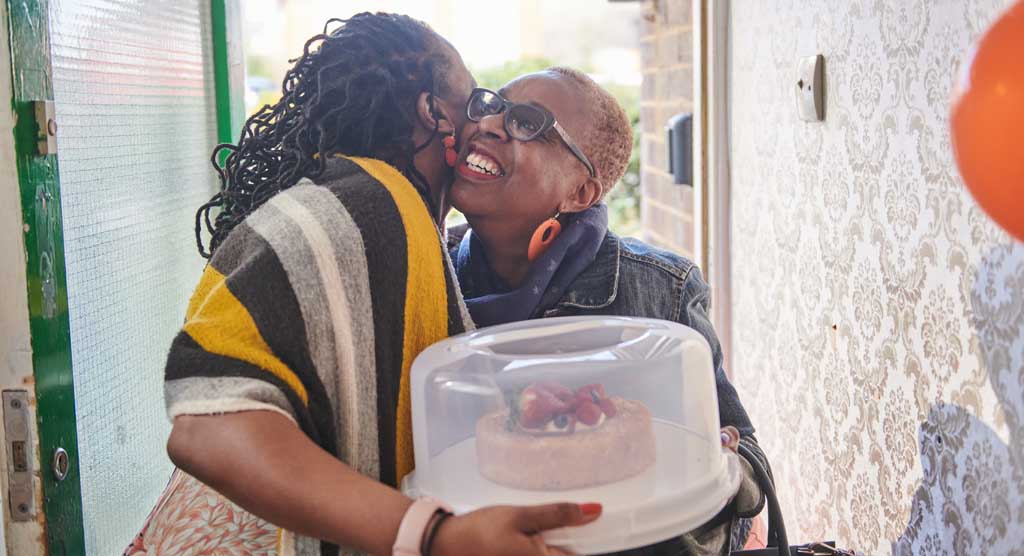What happens after receiving a mortgage offer?

Reading time 4 minutes
At a glance:
A mortgage offer means your application has been accepted by a lender.
After the offer, you’ll sign a contract with your lender to let them know you’re happy with it.
Then your conveyancer can start the legal work.
What needs to happen before a mortgage offer?
Get a Decision in Principle
If want to know how much you can borrow and if a lender may accept you, a Decision in Principle can help.
A Decision in Principle can tell you if a lender might offer you a mortgage and how much you they may be able to lend. It can also show a seller that you’re serious about buying. A Decision in Principle isn’t a guarantee that you’ll be approved for a mortgage.
A Decision in Principle can tell you if a lender might offer you a mortgage and how much you they may be able to lend. It can also show a seller that you’re serious about buying. A Decision in Principle isn’t a guarantee that you’ll be approved for a mortgage.
Make an offer and have it accepted
Once you’ve found the home you want, it’s time to make an offer. Through your estate agent, tell the seller the amount you’re willing to pay.
This price needs to be agreed before a mortgage can be offered. Your estate agent might be able to help you to decide how much to offer.
This price needs to be agreed before a mortgage can be offered. Your estate agent might be able to help you to decide how much to offer.
Checking your salary and deposit
Once your offer has been accepted, the next step is applying for a mortgage. A mortgage lender will need to check that you can afford to borrow money before they make an offer. They will do this by looking at how much you earn and how much you spend.
They’ll check the amount you earn with:
They’ll check the amount you earn with:
Payslips if you’re employed.
Self-assessment documents if you’re self-employed.
Your lender will also check that you have enough deposit for the deal you’re applying for. A lender will also check where the deposit came from.
Lender property valuation
A property valuation needs to be done before a mortgage offer is issued. This is to check that the house is worth what you want to pay for it.

What happens after you’ve been offered a mortgage?
After you’ve been offered a mortgage, there are a few more stages left:
Arrange Home Insurance
You’ll need Buildings insurance when you take out a mortgage. This protects you against the cost of repairs, if your new home is damaged.
Buildings Insurance covers the structure of your home. It often includes the roof, walls and permanent fixtures.
Buildings Insurance covers the structure of your home. It often includes the roof, walls and permanent fixtures.
Exchange contracts
Once you and the seller have signed your contracts, these are exchanged. In England and Wales, are now legally bound to the sale.
It Scotland, this is called a ‘missive’. It’s at this stage that you won’t be able to pull out without risking your deposit and other costs.
It Scotland, this is called a ‘missive’. It’s at this stage that you won’t be able to pull out without risking your deposit and other costs.
Transfer the deposit
Once you’ve exchanged your contacts, it’s time to pay your deposit. This is done by sending the money to your conveyancer. They will transfer it to the seller’s conveyancer, and they will pay it to the seller.
Sign the transfer deed
After you’ve sent the deposit, your conveyancer will gather all the completion documents, including transfer deed, for you to sign.
These are also sent to the seller’s solicitor for them to sign. The transfer deed is the legal document which means the ownership of the house will transfer to you.
These are also sent to the seller’s solicitor for them to sign. The transfer deed is the legal document which means the ownership of the house will transfer to you.
Arrange a completion day
After the deposit has been paid and contracts have been exchanged, you can agree a completion day. This is the all-important day you can move into your new home.

How long does a mortgage offer last?
Mortgages offers don’t last forever. Usually, a mortgage offer is valid for three to six months, but you will need to check with your lender.
How long does it take to get a mortgage offer?
The time it takes to get a mortgage offer from your lender can differ, it could take two to four weeks (or longer).
For example, if you or your partner are self-employed, there might be more documents that you need to provide.
For example, if you or your partner are self-employed, there might be more documents that you need to provide.
How long does it take from mortgage offer to completion?
The time between getting your mortgage offer and completing can be anything from a couple of weeks to a few months.
You can keep things moving by making sure that you provide everything your solicitor needs. After the exchange, a completion day will be set.
If you’re a in chain – which is where buying a home depends on the sale of another – things might move more slowly.
You can keep things moving by making sure that you provide everything your solicitor needs. After the exchange, a completion day will be set.
If you’re a in chain – which is where buying a home depends on the sale of another – things might move more slowly.
The content on this page is for reference. It is not financial advice. For help with money issues, try MoneyHelper.
Find out how much you could borrow
Get a helping hand with your mortgage application.


